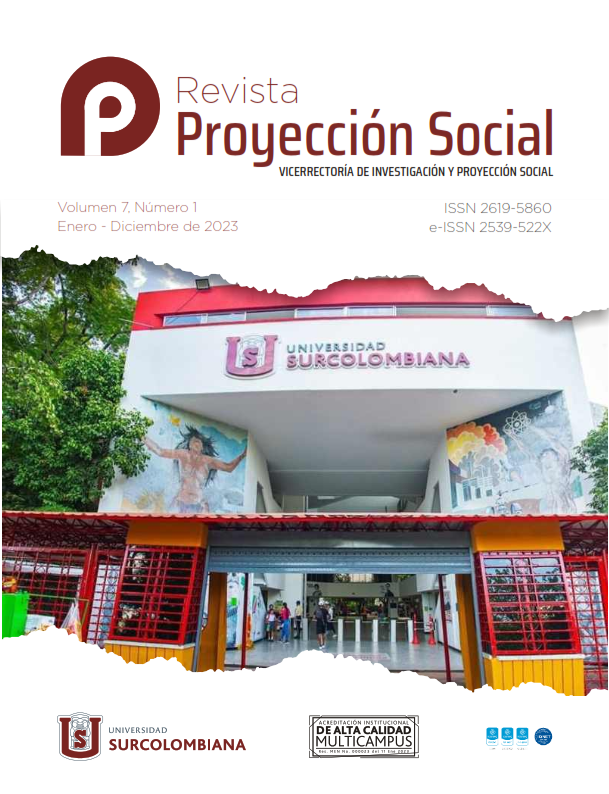Recorriendo caminos con los Tamas Paeces: Una experiencia de reconstrucción de identidad cultural
##plugins.themes.bootstrap3.article.main##
Este artículo presenta la iniciativa del Semillero de Investigación GAIA, afiliado al grupo ILESEARCH, con el propósito de fortalecer la Identidad Cultural en el Resguardo La Gabriela, ubicado en Caguán, Neiva, hogar de aproximadamente 87 familias indígenas pertenecientes a la comunidad Tamas. A lo largo de generaciones, esta comunidad se vio influida por la cultura occidental, lo que resultó en un debilitamiento de su identidad cultural y una falta de perspectivas entre los jóvenes. La metodología empleada fue la
investigación-acción participativa, involucrando a la comunidad en el proceso de identificación de aspectos culturales clave, co-creación de actividades de aprendizaje, y la implementación de estrategias y actividades. El objetivo era rescatar y fortalecer la herencia cultural de la comunidad Tamas, reconociendo su importancia vital para la existencia de las comunidades indígenas en un mundo en constante cambio. Este proyecto tenía un alcance más amplio, destacando la necesidad de promover la educación
intercultural crítica en Colombia, fomentando el respeto y el diálogo horizontal entre culturas diversas en el país. La comunidad del Resguardo Tamas, La Gabriela, se benefició de este esfuerzo colaborativo para preservar su identidad cultural y fortalecer su futuro.
Descargas
##plugins.themes.bootstrap3.article.details##
Aikman, S., & Unterhalter, E. (2005). Beyond Access: Transforming Policy and Practice for Gender Equality in Education. Oxford University Press.
Bergold, J., & Thomas, S. (2012). Participatory research methods: A methodological approach in motion. Forum Qualitative Sozialforschung / Forum: Qualitative Social Research, 13(1), 30-50.
Berkes, F., Colding, J., & Folke, C. (2000). Rediscovery of traditional ecological knowledge as adaptive management. Ecological Applications, 10(5), 1251-1262.
Freire, P. (1970). Pedagogy of the oppressed. Herder and Herder. Geertz, C. (1973). The Interpretation of Cultures. Basic Books.
González, G. M. (2012). La Diversidad Cultural en Colombia. Observatorio de Diversidad Cultural, 5, 1-15. Quijano, A. (2000). Colonialidad del poder y clasificación social.
Journal of World-Systems Research, 6(2), 342-386. Reason, P., & Bradbury, H. (2001). Handbook of action research: Participative inquiry and practice. Sage Publications.
Salamanca, C. G. (2016). Identidades culturales en América Latina. En Reflexiones sobre la diversidad cultural (pp. 1122). Universidad
de La Salle.
Smith, L. T. (1999). Decolonizing Methodologies: Research and Indigenous Peoples. Zed Books.
Smith, L. T. (2005). On tricky ground: Researching the native in the age of uncertainty.
In N.K. Denzin & Y. S. Lincoln (Eds.), The SAGE Handbook of Qualitative Research (3rd ed.,pp. 85-107). Sage Publications.
Turner,
N. J. (2010). Passing on traditional ecological knowledge: the methodology of ethnobiology as a tool for collaborative community-based resource management. Journal of Ethnobiology, 30(2), 129-147.



